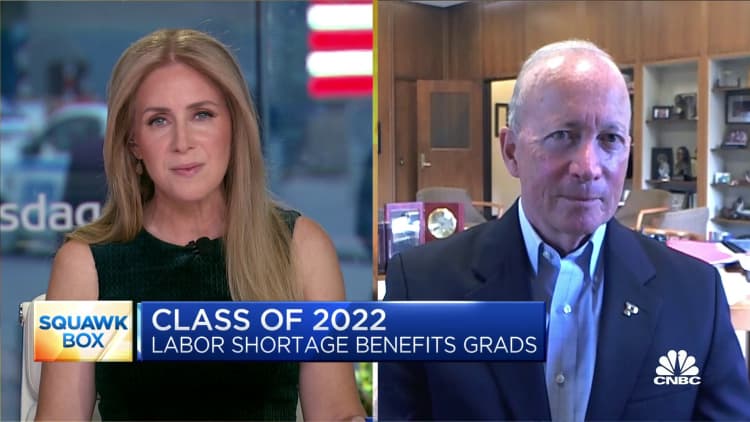It’s never too soon to save for retirement. Here are 3 ways Gen Z workers can start now
Luis Alvarez | Digitalvision | Getty Images
If you’re just out of college, you may be wondering when the right time is to get started with a retirement savings plan. The answer is now, experts say.
To that point, 55% of Americans already working think they are behind on saving for retirement, according to a recent Bankrate survey. That includes 71% of baby boomers and 65% of Gen Xers. But even some younger workers are concerned: Almost one-third, 30%, of Gen Z think they are behind.
Plus, the most common regret among older employees and retirees is that they didn’t start planning or saving for retirement early enough.
More from Personal Finance:
Robinhood to pay 1% ‘match on contributions to IRAs
4 key year-end moves to ‘control your tax reporting destiny’
Why more workers need access to retirement savings
Getting started with a retirement plan in your 20s can help you avoid that regret, stay on track and feel more confident.
“Making this investment is something that will reward you for your entire life,” said Douglas Boneparth, a certified financial planner and the president of Bone Fide Wealth in New York. He is also a member of the CNBC Advisor Council.
“Not only will it reward you, it’s necessary to successfully navigate your life,” he said. “The more work you can put in today to create this foundation, the easier things will be when it becomes more complex down the road.”

Here are three tips to keep in mind.
1. Start within your means
Inflation may make it feel more difficult to get started. Amid higher prices, 60% of Americans are living paycheck to paycheck, according to a recent LendingClub report.
Despite those challenges, young adults can make a retirement savings plan that fits within their lifestyles, Boneparth said. Even starting with a small amount can make a difference over time due to the power of compound interest. And it gives you a foothold to scale up your contributions over time.
Lazetta Braxton, a CFP and the co-CEO at virtual planning firm 2050 Wealth Partners, suggests trying to align your expenses with something called the 50/30/20 budgeting strategy. That calls for you to spend no more than half of your income on essential expenses, and allocate 30% for discretionary expenses and 20% to “pay yourself” with saving and investing.
2. Leverage free money
Brianajackson | Istock | Getty Images
If you work for a company that offers a 401(k) plan or another type of retirement plan, make one of your first goals contributing enough to that plan to receive the full employer match. That’s free money.
“At least contribute to the amount that your employer will match,” said Braxton, who is also a member of the CNBC Advisor Council.
3. Turn to a financial advisor for help
Talking to a financial advisor can help you prioritize your goals and make a plan. (Advisors aren’t just for the wealthy: Some charge by the hour or on a project basis.)
“Make sure that you’re aligned with people who keep your best interests first,” Braxton said. That means looking for an advisor who holds the CFP designation or is otherwise required to act as a fiduciary.
Beyond that, it’s smart to look for someone you trust and who understands your goals.
“A good financial planner is one who is not just looking at your investments, but all aspects of your life,” Braxton said.
“You want someone who’s going to walk with you, help educate you, and help you with life decisions,” she said. “Because you’re just starting your investment journey in your 20s and it’s so key to have someone you can trust.”
For all the latest Technology News Click Here

